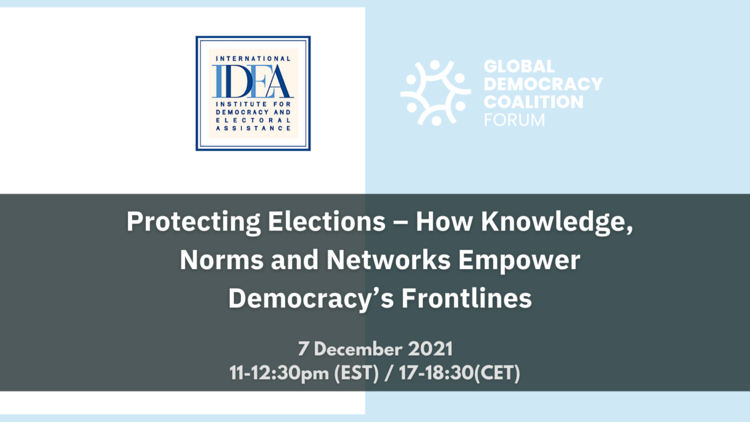A fresh study on the future of Electoral Assistance shows that rapid changes in the global conditions for democracy demand an upgrading and reshaping of the way we support electoral processes abroad and at home.
Recent electoral events have shaken up any assumption of how elections can and should be conducted. Extreme weather events, information manipulation, cyber operations, malign finance and pandemic rapid response measures have tested electoral management bodies and exposed gaps and weaknesses in electoral legal frameworks, capacity, and infrastructure worldwide. In response to these pressures, we have seen examples of resilient and resourceful authorities – and citizens – adapting to radically new conditions at breakneck speed. But we also see the deliberate undermining of elections through fear, misuse of state mechanisms and information manipulation.
Through support to electoral processes and institutions, electoral assistance has enabled citizens’ worldwide to exercise their human rights in electing and legitimising their governments. Such support can be vital for successful transitions from authoritarian to democratic governance, from war to peace, from deep political crises to stability. However, electoral assistance has its limitations. In the past decade, democratic aspirations and human rights remained unfulfilled or have regressed in many countries. Conflicts and coups have wiped out overnight some of the democratic progress built over years through international democracy and electoral assistance. Autocratic behaviours have eroded democratic institutions and processes to the point where elections are rendered meaningless. These global trends threaten new and old democracies alike. A rethink is needed.
This panel will explore themes of protection and resilience in electoral processes and institutions. Structured around the findings of the newly released report,the panellists will draw on their extensive experience of organising elections under tough circumstances and their experience as architects and advocates of electoral knowledge networks and international standards.The discussion will lead to a set of recommendations to the Summit on global norm-setting, regional knowledge networking and other ways to foster courage and morale at the frontlines of electoral work.
AGENDA
Moderator: Therese Pearce Laanela, Head of Electoral Processes, International IDEA
DISCUSSION PANEL
Irena Hadziabdic, Commissioner, Central Election Commission, Bosnia and Herzegovina; IFES Board Member
Amber McReynolds, Expert on US Election Administration and Policy, Founding CEO, National Vote at Home Institute
Avery Davis-Roberts, Expert on International Electoral Norms, Associate Director, Democracy Program at the Carter Center
Zoe Randhawa, Member of Malaysia´s Election Commission
SUMMARY REMARKS
David Levine, Elections Integrity Fellow, Alliance for Securing Democracy, German Marshall Fund of the United States
*Individuals noted on any UN sanctions list (United Nations Security Council Consolidated List) or European Union sanctions list are not allowed to participate in any International IDEA events.

